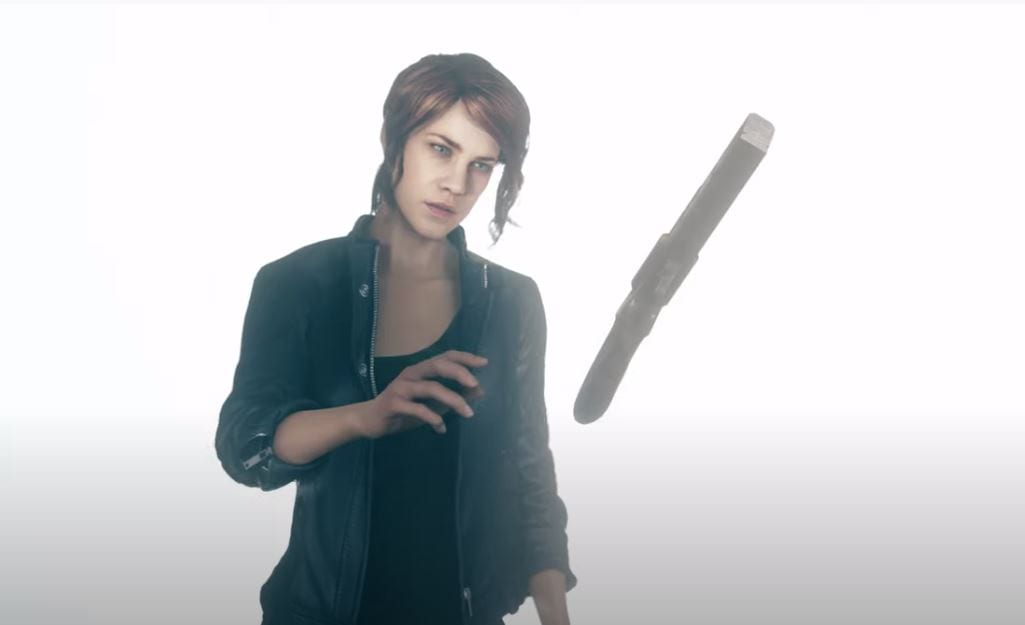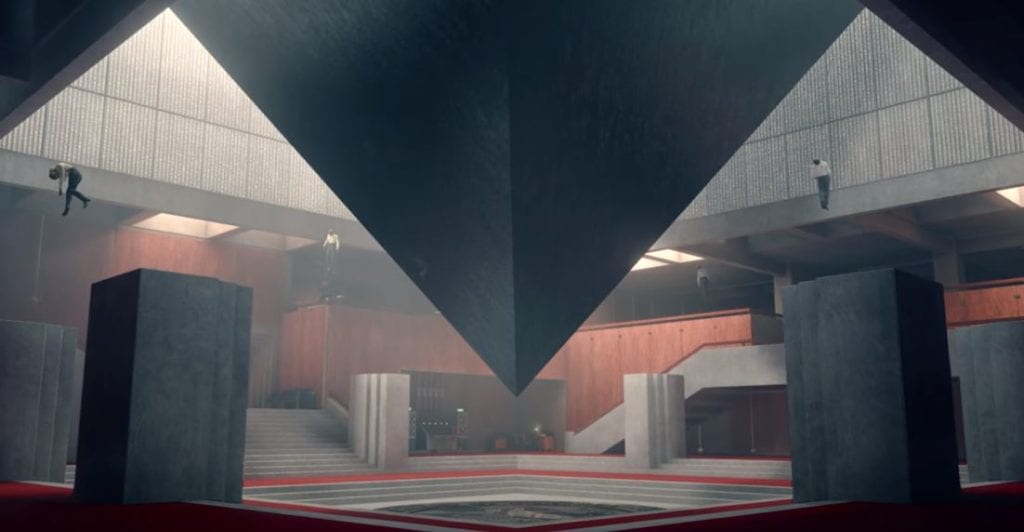A sliver of good news about staying in our houses from fear of a deadly pandemic is suddenly having the time to catch up on the entertainment we’ve missed as wage slaves There are just too many quality shows, books, games, comics, and so forth that we don’t have time to engage with. We all have something that we wanted to play, watch, or read, but just couldn’t. For me, one of those games was Control.
Released in August of 2019, Control was one of the sleeper gaming hits of the year. It was developed by Remedy Entertainment, the same developer of the first two Max Payne games and also Alan Wake, and that is all the kind of resume I need to give Control a try. However, 2019 was a pretty busy year for great games. Between Sekiro, Resident Evil 2, Devil May Cry 5, Fire Emblem, The Outer Worlds, Death Stranding, Star Wars, Kingdom Hearts 3…you know, let’s just leave the list at that. I think I proved my point. A person only has so much time and money to game.
But hey, here we are with time to kill and, well, look at that! Control is free through Playstation Now! Why not download it and see what all the hype is about?

Control puts you in the black leather jacket of Jesse Faden, a woman who shows up at the mysterious headquarters for the Federal Bureau of Control to find her brother Dylan, who has been missing since an incident when both were children. She follows the halls to the office for the Bureau’s director and finds him dead, a strange gun next to him on the ground. She picks it up and…she’s the new Director, tasked with figuring out all the paranormal, supernatural nonsense happening in the building while trying to find Dylan.
The game plays like an intriguing mix between a Metroid game and the Max Payne games. Jesse gradually explores and open up the full breadth of the headquarters, discovering its secrets and ever-shifting architecture. The Director gun is the only weapon, but it can shift into different forms as you mod it; it can be a shotgun, sniper, automatic, or explosive launcher. There are also supernatural abilities that let Jesse fly, throw things telekinetically, and create barriers.
Her enemies are the possessed bodies of the Bureaus employees. They, and the building itself, have been taken over by a force known as the Hiss. This gives them many of the same powers Jesse has, and the boss fights are often against enemies with these powers and larger health pools, making them tankier, harder-hitting versions of the standard enemies.
The Hiss also invades inanimate objects, such as the building itself and “objects of power” that serve as the reason for the Bureau’s existence. Control is heavily influenced by New Weird literature, with a relatively unexplained alternate dimension leaking into everyday items to give them world-altering powers. The Hiss is a kind of opposing power to the power of this alternate dimension, and its corruption of those same objects makes for Control’s larger-scale boss fights.
Unfortunately, these spectacle fights tend to be the worst part of the game. They rely too much on a single gimmick and are set in poorly designed arenas that pose as much of a challenge as the boss itself. They typically have good concepts, but they should have been fleshed out better.
Other than those fights, though, Control’s combat is a blast. The beginning, powerless gunfights are smooth and engaging enough on their own, but as you acquire powers, Jesse transforms into a demigod flying through the air capable of flying through the air and chucking chairs at enemies while blasting them with a shotgun. I was tearing rooms apart and feeling incredibly powerful doing so. The combat can get a bit repetitive while backtracking through previously cleared rooms with respawning enemies, but it never quite crosses over into boredom. The gameplay holds up plenty well enough to carry you through the game.
The enemy variety isn’t great, but it serves Control’s purpose. Some can be popped with a few shots, others have shields to break down with powers, some fly around or float towards Jesse before self-destructing. It keeps the gameplay fresh enough to power through the game’s strong points. It also controls really well, which should come as nor surprise to anyone who played Max Payne or Alan Wake.
The strong points of it definitely involved the environments. If there’s any type of game I am a sucker for, it’s a game that gradually opens up a single fully-realized environment. Whether you call it Metroidvania or more of a Resident Evil-style game, I adore being able to gradually open up an environment. Control does a pretty good job of unfolding the disaster throughout the headquarters and unspooling the mysteries of the building’s origin, the disaster, and the Bureau itself.

Exploring the Bureau is amazing because of the design itself. It’s Brutalist architecture, all raw concrete and hard edges that can shift to a disturbing fluidity when the Hiss remake it before your eyes. It makes the scenario itself a character, one always shifting and keeping me on edge. Eventually, you end up in different dimensions and spacey caverns that are incredibly alien, yet obviously influenced the design of the Bureau. I loved it from moment one and was always impressed, all the way through to the end.
The actual exploration isn’t typically puzzle or gadget-based the way those other games are, but what’s there typically involves the Objects of Power. Whether it’s a light switch transporting Jesse to an inter-dimensional motel or a fridge that kills people if they look away, these make for the few puzzles in the game and they add considerably to the mysterious spook factor of the world. Much of the most interesting lore occurs through these objects and the puzzles tied to them.
Control has a lot of lore, which I also appreciate in games. The sheer number of logs to find could fill a couple books and, again, do a considerable job fleshing out the world and adding to the atmosphere. Even cooler are the live-action videos typically shot like instructional videos, which are perfect in their cheese and cheap quality. One even shows behind-the-scenes footage of the poor extras standing around awkwardly while shooting the videos. It’s absolutely hilarious.
Unfortunately, I thought all this lore and overarching mystery kind of takes away from Jesse Faden’s character arc. Control seems to want to be a journey of discovery for Jesse. Her search for Dylan is as much about coping with the shared trauma of his loss and the life of denial and gaslighting the world put her through to convince her the incident which caused it was not real. There are strong points throughout this journey. The discovery that Jesse’s therapist was a plant hit me fairly effectively, as did the gradual unfolding of the level of control the Bureau had over Jesse’s life.
However, I never got a sense of why she and Dylan were so close. I never really felt the impact these discoveries were meant to have on Jesse. Her larger motivations for her choices throughout the story felt lacking, and sometimes nonexistent. There are hints of larger powers and destiny or whatever to Jesse’s presence and power that never quite materialize. Even when they do, Control doesn’t really explain why it matters. It’s unfortunate that the game can do such a good job with the atmosphere and background lore but fall short with the characters.
I still liked Jesse as a protagonist. That kind of makes it worse. Control could have made me love her. Outside of Jesse, there isn’t a single character I found worth paying attention to as a person. Director Darling is a fascinating plot device more than a person. Trench is cool just to hear Max Payne monologue since Sam Lake does both voices.
The story shares many of these problems. Again, the background lore is fascinating and fills in many of the gaps regarding the Hiss, the corruption of the Bureau, and who was responsible. By making much of it optional, the player can choose how much to engage (or not) with the story. I love that. Some games fail miserably at this idea of player freedom over engaging with the story, but Control handles it very well.
This does leave a lot of things under-explained, or robs it of impact. There are connections to make which should matter more, but lack meaning because of the delivery. I also ended the game with no real idea of what the Hiss is supposed to be, what the Board or their dimension are supposed to be, why one side is better than the others, or what anything’s ultimate goal is. Much like Jesse, things tend to jump from point to point in confusing ways. I still don’t understand why stopping the Hiss is any better than stopping the Board. They both seem to do the same thing, to an extent.
In a way, both the gameplay and story have the same problem. They have a well-made base that makes for a fun, engaging experience, but left me thinking there should be more.
I still had a very good time playing Control, though, and recommend it to anyone looking for a fun shooter with superpowers and/or a game heavy on exploration. If you love a lore-stuffed setting based in creepy, supernatural, modern-day New Weird stuff, even better. Control is a very well made game. If you’re looking for something to play while you’re sitting at home right now, give it a try.

